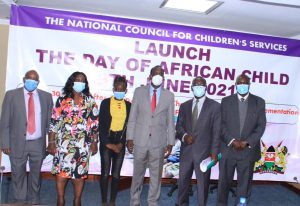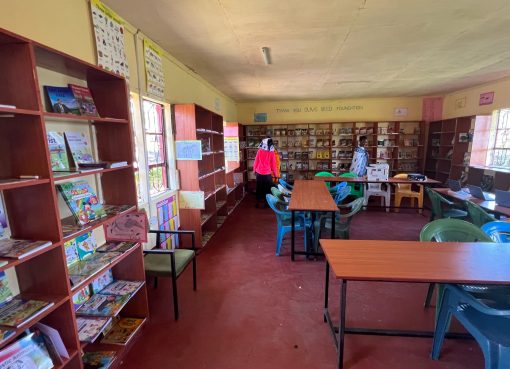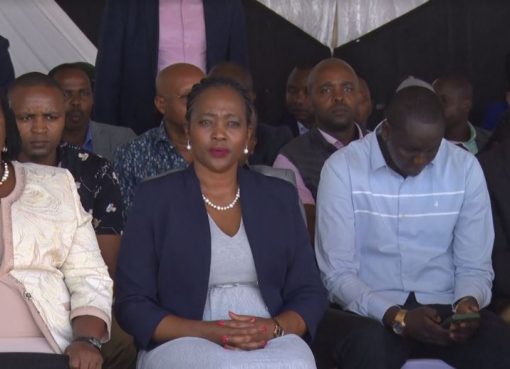Labour and Social Protection Chief Administrative Secretary (CAS), Joseph Ole Ntutu has said Government has put in place many laws, policies and guidelines to safeguard the rights and welfare of children.
Speaking virtually during the launch of this year’s celebrations of the Day of the African Child, the CAS noted that the day gives the Country an opportunity to take stock of what has been done for the children and reflect on what more needs to be done to ensure that the children fully enjoy their rights.
“Children make up almost half of Kenya’s population, and as a country, the government has tried to ensure that there are laws, policies, institutions and programmes that promote child rights and welfare,” Ntutu said.
The Government is in the process of developing a statute to address the inconsistencies between the Constitution and the Children’s Act, 2001.
The statute will also address emerging issues that result from changes and advancements in the various facets of child protection and welfare.
He acknowledged the role of various agencies both state and non-state, especially during this pandemic period as well as in coordination efforts of the National Council for Children’s Services.

“While we have made gains in as far as protecting our children is concerned, it is not lost on us that there are still challenges that impede the full realization of child rights and welfare in the Country, as envisioned in our legal and policy framework,” said Ntutu, however, he stressed that this is an opportunity to renew commitment and resolve towards overcoming these challenges.
Kenya has ratified both international and regional legal instruments for children, including the United Nations Convention on the Rights of the Child and the African Charter on the Rights and Welfare of the Child.
14 year old Child Guest, Margaret Sweene, from Smart Childrens Club in Baba Dogo, Kasarani Sub-county and also the Clubs Integrity Champion said that although Kenya has many children’s rights , it is sad though that some are still on paper.
“Not all children are treated for free when they are sick and sometimes medicine is too expensive for our parents,” the 14 years old and a member of the Smart Children stated.
Sweene mentioned that the unforeseen challenges such as Covid-19 that has adversely affected children’s right to quality education are real and thus called on stakeholders to make the necessary effort and ensure that every child benefits fully from quality education and is protected from sexual abuse, emotional abuse and physical abuse in Kenya.
“The Government should also ensure that every Child benefits from a child-sensitive justice system and be safe from the impact of conflicts, clashes, violence and other emergency situations”, she said, adding that the Aspiration one (1) of Agenda 2040 that says “African Children’s Charter, as supervised by the African Children’s Committee, provides an effective continental framework for advancing children’s rights.
Sweene stressed that all should be committed to make Kenya and Africa fit for Children.
“I would like to remind my fellow children to be responsible and always remember that every right has a responsibility. To our parents, thank you for taking care of us and God bless you as you continue making our families fit for us”.
This year Day of the African Child is being commemorated under the theme: “30 Years After Adoption of the Charter: Accelerate Implementation of Agenda 2040 for Africa Fit for Children”.
This theme calls upon member states of the African Union to reflect on the implementation of the African Charter on the Rights and Welfare of the Child thirty (30) years after it came into force, the challenges experienced and future commitments in line with the aspirations of the Agenda 2040 which was adopted in the year 2016 by the African Committee of Experts
International Day of the African Child 2021 is normally held on June 16 and is set aside in memory of children who were killed and maimed during the anti-colonial struggle against oppression and injustice in Soweto-South Africa in 1976.
By Wangari Ndirangu





